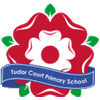Early Years Foundation Stage
Reception Curriculum Statement
We recognise that the learning that takes place in early childhood is the foundation on which children build for the rest of their lives. With this in mind, we are committed to preparing children for life as well as for the next stage of their education.
We recognise that when they start school, our children have had a variety of prior experiences and learning opportunities. Our Early Years Foundation Stage practitioners work with parents and careers to build on these experiences and to ensure children’s learning and development is supported going forwards.
Intent
Our ambition for our youngest children is that they develop an understanding of the world and a love of learning, through a play-based approach, rooted in research which demonstrates that up to the age of seven, children learn best through acquiring first-hand experiences, by being active and by leading their own learning. An effective balance between child-led and adult-led learning allows our children to flourish and become confident and creative learners with the necessary knowledge, skills and dispositions to succeed as they continue their learning journey into Year 1 and beyond.
Implementation
Our Reception Curriculum is organised into four cycles, covering the three Prime and four Specific Areas of Learning and Development, as set out in the Early Learning Goals: Communication and Language, Physical Development and Personal, Social and Emotional Development as well as Literacy, Mathematics, Understanding the World and Expressive Arts and Design. Experiences and activities that relate to the Areas of Learning and Development provide the contexts for children to practise their learning behaviours, and so reinforce the Characteristics of Effective Learning (Playing and Exploring, Active Learning and Creative and Critical Thinking).
Broad topics are mapped out for each of the four cycles but learning is not over-programmed; plans are constantly updated and adapted to take account of what individual children know and can do, what their learning and development needs are and where their interests currently lie. We believe that the key to making our children’s learning effective, exciting, varied and progressive is our practitioners’ good subject and pedagogical knowledge – their understanding of developmental progressions and of how children develop and learn. When planning, our practitioners think carefully about the small steps that will lead to children reaching the Expected Level of Development by the end of Reception and they sequence these carefully across the year. On-going observational assessment of pupils informs adaptations to teaching and the provision of early intervention to those children identified as requiring it.
Phonics
Phonics at Tudor Primary School follows the Read Write Inc phonics program. More information can be found below.





